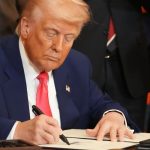What is the LIBRA scandal?
The LIBRA scandal in Argentina is a significant event at the intersection of politics and cryptocurrency. It focuses on President Javier Milei’s promotion of the $LIBRA token, which he said had enormous economic potential. The situation worsened with allegations of financial irregularities, leading to calls for the arrest of Milei’s advisers over fears they would abscond. The scandal led to a collapse in the market value of the $LIBRA token and opened discussions about governance, market manipulation, and investor protection in the Argentine crypto landscape.
How much was lost due to the LIBRA scandal?
Investors reportedly lost more than $251 million due to the fallout from the LIBRA scandal. The market capitalization of the $LIBRA token has plummeted, causing financial hardship for many individuals and industries. This incident highlights the inherent risks associated with political support for cryptocurrency, where hype can translate into substantial losses for investors.
How do political backers influence cryptocurrency markets?
How can political support affect cryptocurrency markets?
Political backers can exert considerable influence over cryptocurrency markets, creating price spikes driven by hype and lacking solid economic foundations. For example, the price of the $LIBRA token spiked after Milei’s endorsement, demonstrating how political favoritism can distort market perceptions. This can lead to speculative trading, with investors rushing to buy assets based on political signals, leading to rapid price increases, quickly followed by sharp declines.
What are the problems that arise from political support for crypto?
Political endorsements, especially from officials with financial interests in approved cryptocurrencies, lead to conflicts of interest. This can undermine investor confidence and encourage market manipulation. The LIBRA scandal highlights the urgent need for increased regulatory oversight in the cryptocurrency sector.
What regulatory measures could mitigate future scandals?
What regulatory measures should be implemented to prevent future scandals?
To avoid future LIBRA-like scandals, regulatory measures must focus on transparency, investor protection, and strict oversight of cryptocurrency approvals by public officials. Key recommendations include:
- VASP Registration Requirement: Crypto exchanges and wallets should publicly disclose full operational details.
- Clear rules: This should include disclosure of conflicts of interest for politicians endorsing cryptocurrencies.
- Robust Investor Protection: Emphasizing due diligence, independent audits, and multi-signature wallets can help mitigate the risks of fraud and insider trading.
- Investigative bodies: Establishing independent reporting mechanisms can help respond to allegations of fraud without political interference.
- Alignment with international standards: Updating laws to meet FATF recommendations can help detect and prevent illicit financial flows linked to cryptocurrencies.
How do these measures create a more secure crypto environment?
Such measures are designed to foster a transparent and accountable crypto environment that protects investors and minimizes the risk of politically motivated scams.
How do political scandals affect public trust in cryptocurrencies?
How do scandals involving cryptocurrencies affect trust?
Scandals like LIBRA typically erode public trust in digital assets, especially in emerging markets with weak institutional frameworks. The LIBRA scandal has shown how links to corruption and manipulation can increase skepticism among the public and policymakers.
What is the relationship between crypto use and perceived corruption?
Research suggests that greater use of cryptocurrencies correlates with higher perceptions of corruption, particularly in countries with weaker institutions. This perception can hinder broader adoption, as individuals may be hesitant to engage in a market perceived as unstable and manipulable.
What does this mean for crypto startups in politically unstable regions?
What are the implications of the LIBRA scandal for crypto startups?
The LIBRA scandal casts a long shadow over the future of crypto startups in politically unstable regions. The reputational damage to Argentina’s crypto sector serves as a cautionary tale for global investors about markets plagued by politicization and weak oversight.
How Could Future Regulations Affect Crypto Startups?
The scandal could prompt tighter regulations in emerging markets, which could stabilize but also hamper innovation. Political instability can make market volatility more pronounced, complicating startups’ efforts to secure stable funding and predict terms.
What can crypto startups do to alleviate these challenges?
To overcome these obstacles, crypto startups may need to emphasize transparency and showcase their value beyond speculative hype. Incorporating decentralized oversight could reduce political influence and ensure fair practices, while partnerships with reputable entities and a focus on projects with inherent value could help startups thrive in such environments.










